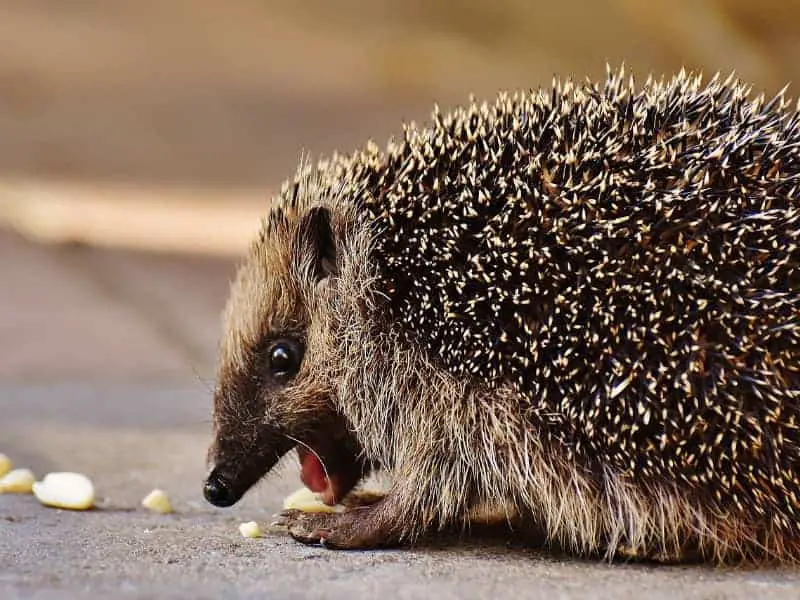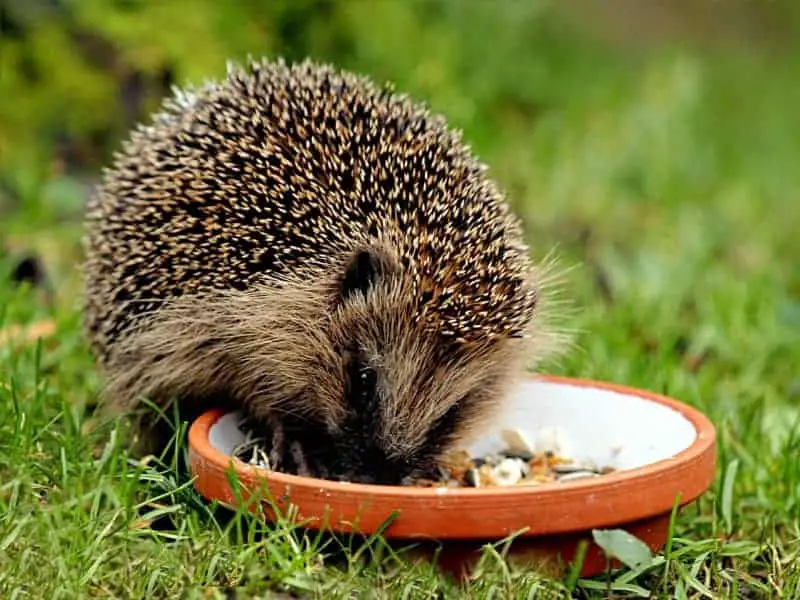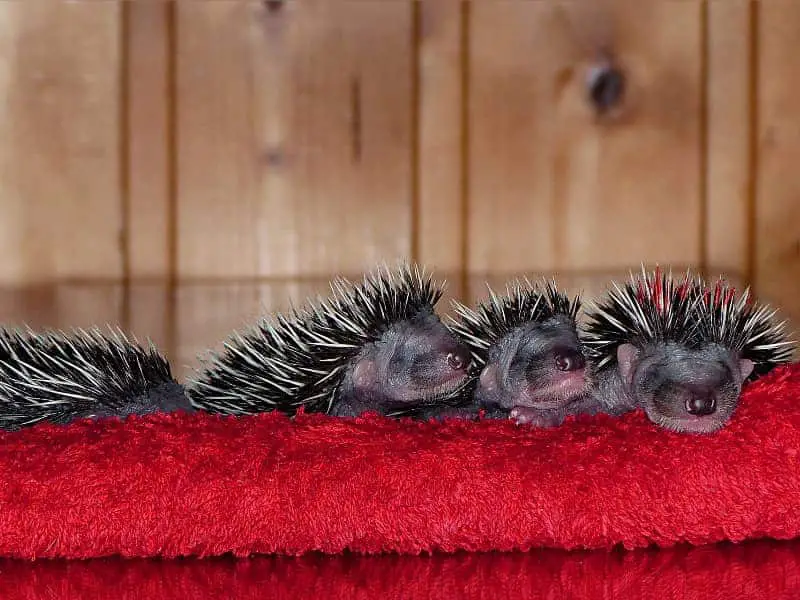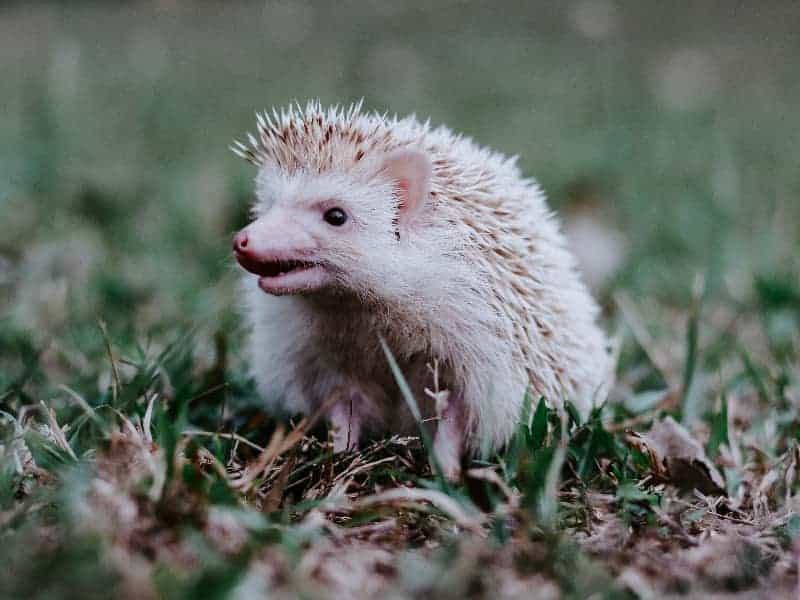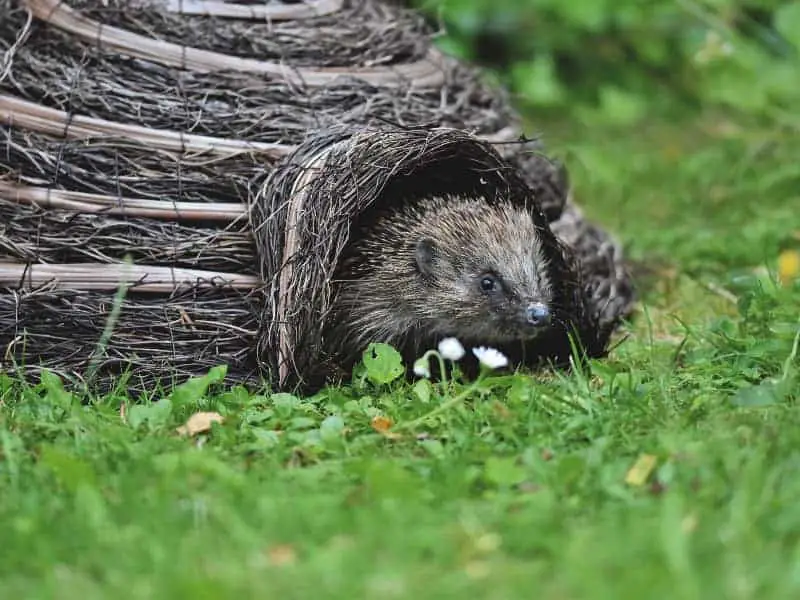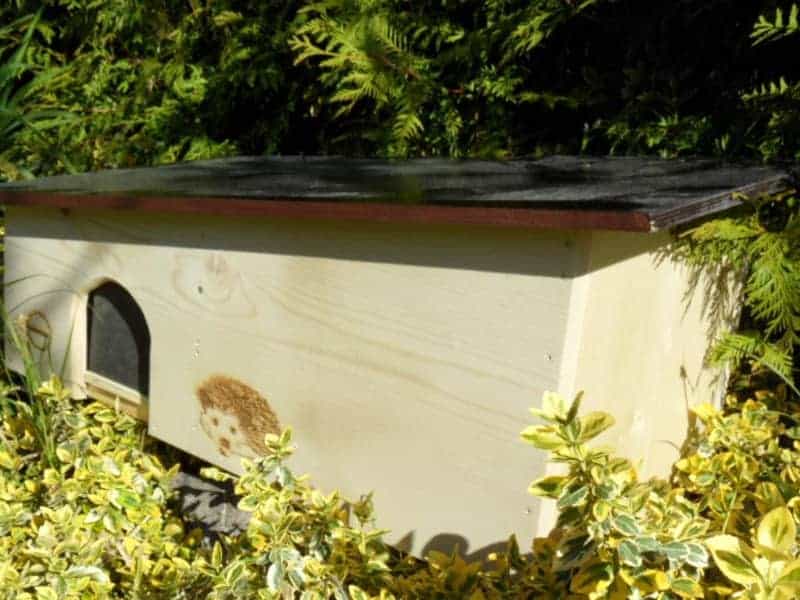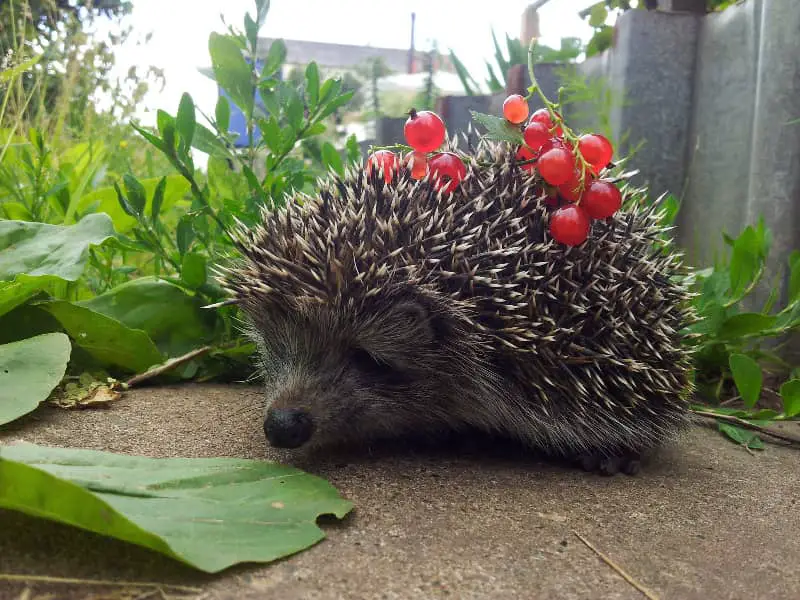
Do hedgehogs eat fruit?
You certainly want to take good care of the little spiny animals in your garden, don't you? The topic of hedgehog nutrition is not only exciting, but also essential for the well-being of our little friends. In this blog post we clarify the question that moves many hedgehog fans: Do hedgehogs eat fruit?
- Do hedgehogs eat fruit?
- Why the topic: Do hedgehogs eat fruit?
- Basics of hedgehog nutrition
- Advantages and disadvantages of fruit in hedgehog nutrition
- Why you should not feed fruit to hedgehogs
- Alternative food for hedgehogs
- Conclusion: Do hedgehogs eat fruit?
- FAQ: Do hedgehogs eat fruit?
- Do hedgehogs really not eat fruit?
- What should I feed instead?
- Can fruit cause health problems in hedgehogs?
- I have seen hedgehogs eating fruit. Why?
- Can I then also not use fruit in hedgehog food mixtures?
- Are all fruits equally harmful to hedgehogs?
- Where can I buy special hedgehog food?
- How do I recognize malnutrition in a hedgehog?
Why the topic: Do hedgehogs eat fruit?
Whether you have a hedgehog in your garden or have found an orphaned hedgehog, the question of proper nutrition is crucial. The wrong food can endanger the hedgehog's health and even lead to deficiency symptoms. So the topic of "Do hedgehogs eat fruit?" is not just interesting out of curiosity, but also has serious implications for the health of the animals.
What you will learn in this blogpost
During this article you will get an overview of the basic foods of hedgehogs and learn what role fruit plays in their diet. We will discuss advantages and disadvantages and give you tips for feeding. Finally, you will know exactly how to provide your prickly friend with the best nutrition without endangering his health.
Basics of hedgehog nutrition
Nutrition plays a major role in the life of hedgehogs. But what exactly is part of a balanced hedgehog diet?
Hedgehogs main food
Hedgehogs are insectivores by nature. Their natural diet consists mainly of insects, spiders, snails and worms. In addition, they also like to eat small rodents and eggs if they can find them. However, as they move more and more into our gardens, their diet changes over time.
The question then arises here as to whether fruit is also part of this new diet. It is important to understand these basics to get a better picture of which foods are suitable for hedgehogs and which are not.
Deficiency symptoms and risks
Hedgehogs are adapted to a high-protein diet. If they cannot get enough of the nutrients they need, they are more susceptible to disease and can develop deficiency symptoms. This can be particularly problematic in the period before hibernation.
A lack of protein, vitamins and minerals can lead to a weakened immune system, coat problems and in extreme cases even serious health problems. This is one of the reasons why the question "Do hedgehogs eat fruit?" is so important. It's not just about what they like, but what they really need.
Advantages and disadvantages of fruit in hedgehog nutrition
Fruit can be a delicious and varied addition to a hedgehog's diet, but as with anything, there are pros and cons to consider.
Nutrient content
Fruit provides a number of vitamins and minerals that are very healthy for humans, but what about hedgehogs? Some types of fruit can provide beneficial nutrients for hedgehogs. Apples, for example, contain vitamin C and fiber, while berries may also contain antioxidants.
However, it is important to emphasize that these nutrients are present in much smaller quantities than in the hedgehogs' natural, protein-rich diet. Fruit should therefore only be fed occasionally and in small quantities so as not to jeopardize a balanced diet.
Potential risks
Although fruit in moderation can provide some benefits for hedgehogs, it also carries risks. For one thing, too much fruit consumption can lead to diarrhea. For another, fruit also contains natural sugars, which are not optimal for hedgehogs because their digestive systems are not designed to process large amounts of sugar.
Another risk is feeding unsuitable types of fruit. Citrus fruits in particular can irritate the gastrointestinal tract of hedgehogs, and the substances contained in grapes can be toxic to them.
So fruit is a double-edged sword in hedgehog nutrition. On the one hand, it can provide a welcome change and even provide some nutrients, but on the other hand there are clear risks to be aware of.
Why you should not feed fruit to hedgehogs
Having looked at the various aspects of fruit in hedgehog diets, we come to an important point: why it is actually better not to feed hedgehogs fruit.
Health risks
As mentioned earlier, hedgehogs' digestive system is mainly geared towards eating insects and other small animals. Fruit contains fructose, a natural sugar that is difficult for hedgehogs to digest and can cause digestive problems such as diarrhea. There is also a risk of fermentation in the intestines, which can also cause health problems.
Malnutrition
Fruit contains far from the same essential nutrients as the hedgehog's natural diet. A hedgehog that eats mainly fruit will suffer from malnutrition, which can manifest itself in weak growth and increased susceptibility to disease. Especially before hibernation, a balanced, protein-rich diet is critical to the hedgehog's ability to survive.
Wrong eating habits
Once hedgehogs know and like the taste of fruit, they may begin to avoid their natural food. This can lead to a dependence on this unhealthy food source and disrupt their natural feeding behavior.
Considering these points, it is advisable to refrain from feeding fruit and instead resort to special hedgehog food or natural foods such as insects and worms.
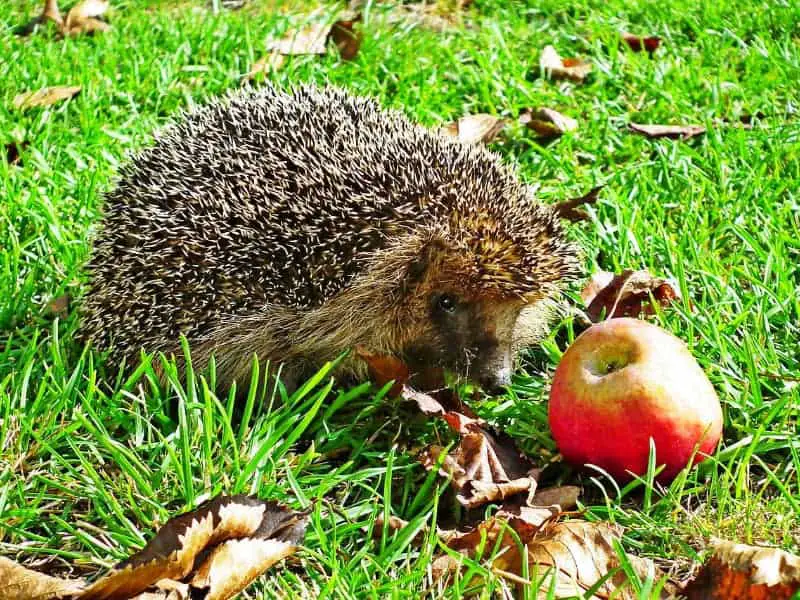
Alternative food for hedgehogs
Having discussed in detail the problems fruit can cause in a hedgehog's diet, the question naturally arises: what are the best alternatives?
Insects and small animals
In the wild hedgehogs feed mainly from insects, worms, snails and small vertebrates. These foods are rich in proteins and other nutrients that are essential for the health of the hedgehog. So if you have a hedgehog in your garden and want to support him, you can safely use insects such as mealworms, crickets or special insect mixtures. These most closely reflect the hedgehog's natural diet and are best for his health.
Special hedgehog food
If you do not want to deal with live insects, you can also use special hedgehog food from specialized stores. These products are formulated to contain all the necessary nutrients, while conforming to the hedgehog's natural feeding habits. They usually consist of a mixture of dried insects, vegetables and special vitamins and minerals.
The use of special hedgehog food has the advantage that it often has a long shelf life and can be stored without problems. In addition, these products are usually composed in such a way that they do not pose any health risks to the hedgehog.
No products found.
Conclusion: Do hedgehogs eat fruit?
The diet of a hedgehog is a complex issue that must take into account many different aspects. Although fruit may seem like a good option at first glance, we've seen that it actually poses several risks and drawbacks to a hedgehog's health. From diarrhea and digestive problems to the risk of malnutrition, fruit is simply not the ideal choice for a hedgehog's diet.
The best source of food for hedgehogs are insects and other small animals that they would find in the wild. For those who want to support a hedgehog, but are not willing to feed him insects, there are special hedgehog foods as an alternative.
If you discover a hedgehog in your garden and want to do something good for him, you should therefore better resort to his natural food sources or use special hedgehog food. This way you can make sure that the hedgehog gets all the necessary nutrients without endangering his health.
I hope this blog post has given you a comprehensive overview of hedgehog nutrition and made you realize why fruit is not the best choice for these little spiny critters.
FAQ: Do hedgehogs eat fruit?
Do hedgehogs really not eat fruit?
Correct, hedgehogs are mainly insectivores. Fruit is difficult for them to digest and does not contain the necessary nutrients they need for their health.
What should I feed instead?
The best food for a hedgehog are insects such as mealworms, crickets and worms. Special hedgehog food from specialized stores is also a good option.
Can fruit cause health problems in hedgehogs?
Yes, fruit can cause digestive problems such as diarrhea and carries the risk of fermentation in the hedgehog's gut. In addition, a diet based on fruit can lead to malnutrition.
I have seen hedgehogs eating fruit. Why?
It is possible for a hedgehog to eat fruit out of curiosity or when food is scarce, but that does not make it an ideal food source. It is advisable not to feed fruit to hedgehogs.
Can I then also not use fruit in hedgehog food mixtures?
It would be better to avoid fruit altogether. Instead, you should rely on protein-rich food such as insects or special hedgehog food.
Are all fruits equally harmful to hedgehogs?
Some fruits may contain more sugar or acids than others, but in general fruit is not the best food source for hedgehogs and should be avoided.
Where can I buy special hedgehog food?
You can find special hedgehog food in pet stores or online stores. Make sure it is a product that has been specially formulated for the needs of hedgehogs.
How do I recognize malnutrition in a hedgehog?
Signs of malnutrition can include poor growth, gaunt appearance, and increased susceptibility to disease.
Author

-
Garden animal - A life with nature
Welcome to my animal blog! My name is Dirk and I am happy to take you on my journey through the fascinating world of animals and gardening.
Born 54 years ago, I have had an insatiable curiosity for the animal world around me since childhood. Although I have moved professionally in other industries, my true passion has always been animals and nature. It is remarkable how a small garden has become such an important part of my life.
Many of my fondest memories are associated with the animals that share our home. Whether it's the curious squirrels that scurry across the trees in the morning, the colorful variety of birds that visit our feeders, or the busy bees and butterflies that pollinate our flowers, every moment with them is invaluable to me.
This blog is my contribution to share my experiences, discoveries and insights with like-minded people. Here I will share stories of unforgettable encounters with animals, give tips on gardening and creating wildlife-friendly habitats, and take you on my journeys through nature.
Thank you so much for being here!
Cordial,
Dirk aka garden animal
Last posts
- 27. February 2024PetsVeganes Hundefutter – Grün und Gesund?
- 18. January 2024ChickensOregano für Hühner
- November 27, 2023HamsterDiurnal hamsters
- November 24, 2023HamsterHamster hammock
Letzte Aktualisierung am 2026-02-28 / Affiliate Links / Bilder von der Amazon Product Advertising API

